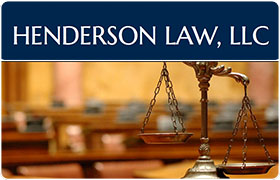Mccomb Juvenile Law Lawyer, Mississippi
Sponsored Law Firm
-
 x
x

Click For More Info:
-
Henderson Law, LLC
115 North Cleveland Avenue Brookhaven, MS 39601» view mapDUI, Criminal Defense, Traffic Offenses, Burglary Mississippi Criminal Defense Lawyer
Henderson Law, LLC is committed to helping people overcome the serious effects of being arrested and accused of a crime.
800-939-0830 -
- Contact
- Practice Areas
- Visit:
- Website
- Profile
Not enough matches for Mccomb Juvenile Law lawyer.
Below are all Mccomb Criminal lawyers.
Heather White Martin
✓ VERIFIEDCriminal, Family Law, Estate
Heather White Martin is a practicing lawyer in the state of Mississippi handling family law cases.
Megan Stuard Thornton
Accident & Injury, Car Accident, Criminal, Child Custody
Status: In Good Standing Licensed: 12 Years
Lyndsay Dawn Mapp
Criminal, Divorce & Family Law, Accident & Injury, Felony
Status: In Good Standing Licensed: 14 Years
Amy Foster Ryan
Commercial Real Estate, Mediation, Family Law, Juvenile Law
Status: In Good Standing Licensed: 29 Years
Katelyn Adele Riley
Juvenile Law, Landlord-Tenant, Traffic, Divorce
Status: In Good Standing Licensed: 9 Years
Deborah L Benner
Criminal, Government Contract, State Government
Status: In Good Standing Licensed: 32 Years
J Daniel Smith
Divorce, Criminal, Bankruptcy, Medical Malpractice
Status: In Good Standing Licensed: 51 Years

 Edward Henderson Brookhaven,MS
Edward Henderson Brookhaven,MS About UsEdward Henderson
About UsEdward Henderson Contact UsCall or Email Now!
Contact UsCall or Email Now!

